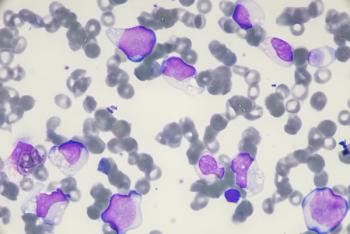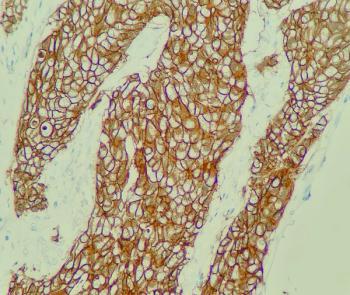
The drug is being investigated as a PET diagnostic of cardiac amyloid light-chain and amyloid transthyretin-related (ATTR) amyloidosis.

The drug is being investigated as a PET diagnostic of cardiac amyloid light-chain and amyloid transthyretin-related (ATTR) amyloidosis.

Memantine/donepezil and everolimus are used to treat dementia of the Alzheimer type and tuberous sclerosis complex-associated subependymal giant cell astrocytoma, respectively.

Patients with multiple sclerosis being treated with glatiramer acetate have an increased risk of experiencing anaphylaxis.

The FDA approved treosulfan, in combination with fludarabine, for patients 1 year of age and older with acute myeloid leukemia (AML) or myelodysplastic syndrome (MDS).

Vusolimogene oderparepvec in combination with nivolumab is being assessed to treat individuals with unresectable or metastatic stage IIIb-IV cutaneous melanoma.


Esketamine targets glutamate, the most abundant neurotransmitters in the brain.

The closure of Baxter’s North Cove facility has significantly impacted existing IV fluid shortages into 2025.

The report from the Office of Inspector General highlights inconsistencies, lack of transparency, and the need for stronger safeguards.

Compared with chemotherapy, Dato-DXd demonstrates favorable median progression-free survival and overall survival in a phase 3 clinical trial.

The FDA proposes to cap the nicotine level at 0.7 mg per gram of tobacco in cigarettes and certain other combusted tobacco products.

If finalized, the requirement would include readily available nutrition information, including saturated fat, sodium, and added sugar content.

Data from the CodeBreaK 300 trial supported the FDA's approval.

Acalabrutinib with bendamustine and rituximab shows efficacy in patients with untreated mantel cell lymphoma by increasing progression-free survival in the ECHO trial.

The current approved dose of axatilimab-csfr is 0.3 mg/kg up to a maximum dose of 35 mg and will be administered as an intravenous infusion over 30 minutes every 2 weeks.

This is mirikizumab’s second FDA-approved indication in inflammatory bowel disease.

The test meets a critical unmet need for patients with Alzheimer disease who have not yet been undiagnosed.

Studies shows that Red Dye No. 3 was associated with tumor growth in male rats.

According to the investigators, BBO-8520 represents a first-in-class approach to treating patients with previously treated KRASG12C-mutated metastatic non-small cell lung cancer (NSCLC).

A new indication for the antibody-drug conjugate expands the future clinical potential of the treatment in patients with the rare breast cancer.

Datopotamab deruxtecan was also granted breakthrough therapy designation in December 2024.

If approved, nipocalimab can treat antibody positive individuals with generalized myasthenia gravis.

The designation was supported by data from the phase 2, open-label, randomized, multi-center ARTEMIS-002 clinical trial, which assessed the safety and efficacy of GSK’227.

Invikafusp alfa (STAR0602; Marengo Therapeutics Inc) is being investigated as a treatment for advanced colorectal cancer with high tumor mutational burden.

The designation follows positive phase 2a trial results (NCT05104853) presented at the 2024 AASLD The Liver Meeting.

ALG-801 could present new opportunities to improve treatment and management of patients with pulmonary arterial hypertension, a life-threatening condition.

In a phase 2 trial (NCT05400226), abenacianine helps surgeons visualize tumors in lung during surgery and is safe and well-tolerated in patients.

These new regulatory developments put CUTX-101 on track to become the first FDA-approved treatment for patients with Menkes disease.

Duchenne muscular dystrophy is an incurable neuromuscular disorder that can lead to cardiomyopathy, resulting in heart failure.

The new designation for the selective PPAR⍺ antagonist follows positive phase 1b/2 clinical trial results.